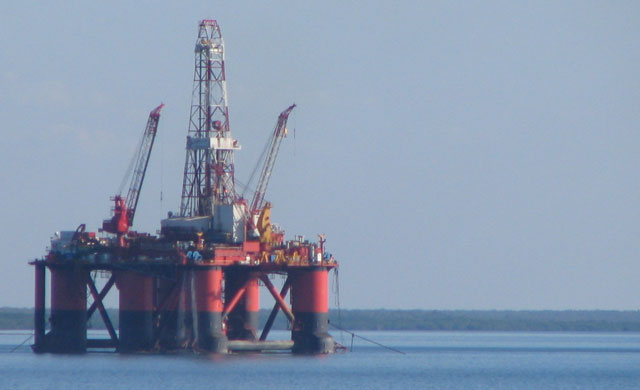Shares of BP (LSE:BP.) closed UP 1.38% today to 392.65 on the day it reported the largest quarterly loss in the history of the company. The $6.3 BILLION loss, however, comes along with a sigh of relief that should end five years of holding its corporate breath in hopes that it might suffer minimally from the after effects of the Deepwater Horizon explosion and subsequent oil spill.

However, the U.S. Environmental Protection Agency took off the gloves and went after BP’s deep pockets, whipping it with the might of the nefarious government money-making scheme called the Clean Water Act. When the EPA comes after you with the CWA, you may as well get ready for a beating and stay down for the count. If you try to get back up, they will pummel you until you are done like dinner.
BP took a one-off $10.8 billion charge during the quarter to cover the balance of the outstanding claims against it following the tragic incident, for which it should hardly reasonably be held accountable as negligent. But that’s another story and we’ve covered it many times before.
Looking Beyond the Horizon
The failure of the the Deepwater Horizon well has now cost BP a total of $54.6 billion over the half-decade. Although the charges are astronomical, BP CEO Bob Dudley said that the good news is that the litigation process is over and “we can now plan for the future,” something, he said, the company has not been able to do for the past five years. That may be the best news BP has received in a long time.
But Dudley reported even more good news. “As a result of the settlement in the US. it is actually less likely that someone would want to acquire BP and it is certainly not our intention to put the company up for sale.”
Preparing for the Future of Oil
CFO Brian Gilvary announced separately that BP has been positioning itself for “a world in which oil prices remain lower for longer.” The average price of Brent crude during the second quarter was $62 per barrel. In 2014 the average price was $110. The company expects the price to remain about the same throughout the short and medium term.
Dudley added that “I am confident that positioning BP for a period of weaker prices is the right course to take, and will serve the company well for the future.” He is also continuing to operate the company leaner by selling of another $10 billion in assets this year in addition to the $7.4 billion already sold this year. Capex was originally expected to reach $20 billion, but the company will be taking measures to keep it well below that mark and could be looking at a cost avoidance of $2 billion or more.
BP shares have been in a rather steady decline since April and, at 392.65, are 52.48 below its 120-day moving average and 108.70 points below its 52-week high of 501.30. BP shares traded at 623.40 prior to the Deepwater Horizon incident.


 Hot Features
Hot Features













